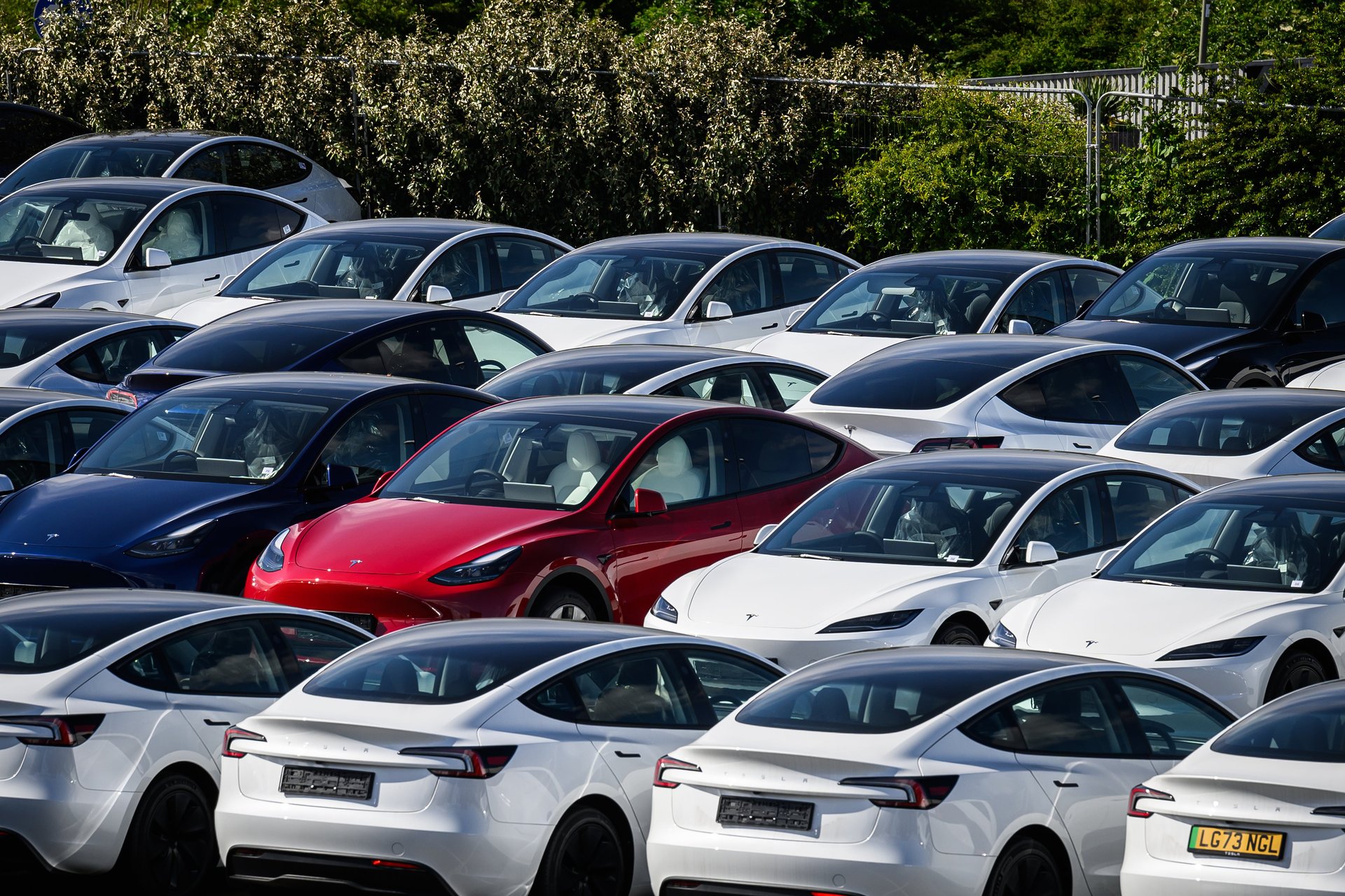Tesla's layoffs 'leave no doubt' that Elon Musk has an EV demand problem, J.P. Morgan says
The company sold far fewer electric cars than Wall Street expected last quarter

Consider Tesla’s sweeping layoffs a result of declining demand for its electric vehicles, according to J.P. Morgan analysts.
Suggested Reading
Elon Musk’s automaker delivered 386,810 electric vehicles over the first three months of 2024, well below Wall Street’s expectations for what has been described as a “nightmare” of a first quarter.
Related Content
Tesla sold just 369,784 Model 3 compact cars and Model Y SUVs last quarter and 17,027 other EVs. Overall, sales fell 8.5% compared to a year earlier, marking the Austin, Texas-based company’s first year-over-year decline since the second quarter of 2020.
Tesla also produced fewer vehicles in the quarter than it did during the first three months of 2023. The company assembled 433,371 EVs last quarter, down from 440,808 in 2023, and pinned the blame on assembly line updates in California and repeated factory shutdowns in Germany.
That had analysts raising eyebrows.
“We assigned little credence to this explanation at the time,” J.P. Morgan analysts said in a note to investors Tuesday, noting that Tesla also produced 47,000 more vehicles than it sold.
Although investors were more willing to accept Tesla’s reasoning, analysts were skeptical. Deutsche Bank analysts said in a note to investors at the time that the disparity between units made and units sold “confirms that beyond the known production bottleneck, there may also be a serious demand issue.”
Tesla on Sunday laid off “more than 10%” of its global workforce, or at least 14,000 people. Musk cited the “duplication of roles and job functions in certain areas,” according to a leaked memo to staff. He later wrote on X that Tesla needs to “reorganize and streamline the company for the next phase of growth” every five years.
“[T]he sweeping layoffs announced yesterday, amounting to a reduction in crewed production capacity, should now leave no doubt that the decline in deliveries has been a function of lower demand and not supply,” J.P. Morgan analysts wrote Tuesday.
There are plenty of reasons for Tesla to be grappling with low demand, and not all of them are necessarily its fault. At the same time, it’s hard to argue that other failings — the series of issues affecting Tesla’s Cybertruck electric pickup, which culminated in a stop-sale order, and inquiries from U.S. auto safety regulators — can be blamed anywhere but Tesla itself.
Tesla stock continued its months-long descent on Tuesday after the mass layoffs swept through the company’s operations in Texas and executives resigned.
EV slowdown
Many automakers are seeing EV sales growth slow worldwide, especially in China, because early adopters and enthusiasts have already purchased their “greener” cars.
Now EV makers need average consumers to get on board with the idea of turning away from their gas-guzzlers. Tesla and other companies also have to soothe what’s known as range anxiety — or the fear of running out of power without access to a nearby station — which has been a significant concern for people looking to buy an EV. Ford CEO Jim Farley has said overcoming the anxiety is the crucial next step to boost EV sales.
Electric cars also generally cost more than gas-powered cars or hybrid vehicles, an ever-popular alternative for consumers and automakers in recent years. The average vehicle sold in the U.S. last month went for $47,218, compared to electric vehicles’ $54,021, according to Kelley Blue Book. Although prices have been declining — largely thanks to increased incentives and slashed price tags — EVs still cost more, on average, than traditional cars.
